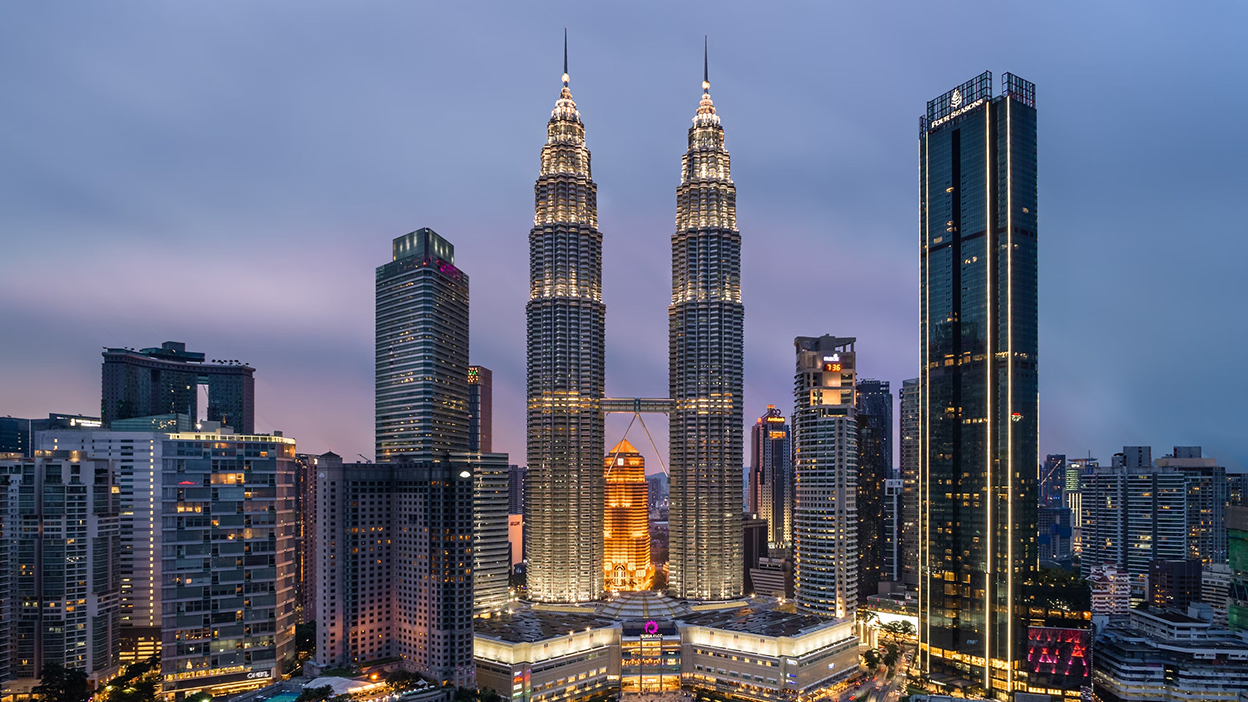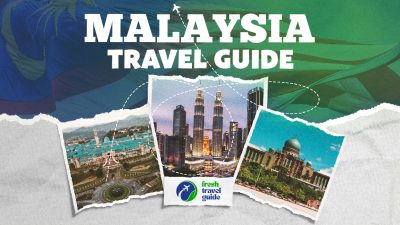Top Travel Mistakes to Avoid in Malaysia for a Smooth and Safe Trip
Travel mistakes to avoid in Malaysia are common errors that tourists often make, which can negatively affect their trip experience. Whether you’re visiting Malaysia’s bustling cities, pristine islands, or cultural landmarks, knowing what not to do is just as important as knowing where to go.
Malaysia is a vibrant Southeast Asian destination known for its rich cultural heritage, diverse landscapes, and warm hospitality. From the vibrant streets of Kuala Lumpur to the calm beaches of Langkawi, this beautiful country offers something extraordinary for every traveler. However, many first-time visitors fall into avoidable traps that can lead to misunderstandings, safety issues, or simply less enjoyable travel experiences.
Being aware of common Malaysia travel mistakes ensures your trip is smooth, fun, and respectful of local customs. In this guide, we’ll cover frequent pitfalls to avoid, essential Malaysia travel safety tips, important cultural do’s and don’ts, sensitive topics to steer clear of, and bonus practical advice that every traveler should know before arriving.
Let’s dive into the top travel mistakes to avoid in Malaysia and how you can make the most of your journey with the right preparation.
Common Malaysia Travel Mistakes

Common Malaysia travel mistakes refer to the mistakes frequently made by tourists that can disrupt their trip or create uncomfortable situations. Understanding these errors helps you plan better and avoid unnecessary hassles.
Overpacking or Underestimating the Tropical Climate
Malaysia’s tropical climate means it is hot and humid almost all year round, with daytime temperatures generally between 30 to 35 degrees Celsius (86-95°F). Many tourists make the mistake of overpacking heavy clothes or jeans, which are not suitable for the heat and humidity.
Additionally, monsoon seasons bring sudden heavy rain showers, especially between November and March on the east coast and from May to September on the west coast. Failing to bring waterproof gear or light rain jackets often leaves travelers stuck indoors or drenched without any protection.
Tip: Pack lightweight, breathable clothing made from cotton or moisture-wicking fabrics. Include a compact rain jacket or travel umbrella to manage tropical downpours efficiently.
Not Respecting Local Customs and Etiquette
Many visitors make the mistake of not respecting local customs, which can lead to uncomfortable social situations or even offense.
Key cultural etiquette includes:
- Avoid using your left hand for eating, handing over money or gifts, or greeting others. In Malaysian culture, the left hand is traditionally considered unclean.
- Always remove your shoes before entering someone’s home or religious sites, including mosques and Hindu temples like the famous Batu Caves near Kuala Lumpur.
- Avoid touching anyone’s head, as it is considered a sacred part of the body in Malay and other local cultures.
- Never point with your feet or use feet to touch objects, as this is regarded as disrespectful.
Getting familiar with these nuances is essential to avoid awkward moments.
Underestimating Travel Times
Malaysia’s geography and urban layout mean travel times can be longer than you expect.
- Traffic congestion in major cities like Kuala Lumpur can significantly increase travel time, particularly during rush hours.
- Distances between popular destinations, especially if crossing between peninsular Malaysia and East Malaysia (Borneo), require advance planning.
- Public transport connections outside the cities may not be frequent, so budgeting extra time for transfers is wise.
Plan ahead and use apps or local guides to estimate realistic travel durations.
Ignoring Weather Conditions
Ignoring Malaysia’s differing weather patterns can lead to disrupted plans.
- The east coast islands (like Perhentian and Tioman) experience monsoon rains mainly from November to March, leading to boat cancellations and resort closures.
- The west coast (such as Penang and Langkawi) has its monsoon from May to September with heavy daily rainfall mornings or evenings.
Check daily weather forecasts before booking tours or trips, and stay flexible with your itinerary. For practical weather advice and trip planning, see our things to know before visiting Malaysia.
Not Carrying Enough Local Currency or Relying Solely on Cards
While Malaysia is developing cashless payment options, many small businesses, street vendors, rural shops, and markets still prefer cash payments in Malaysian Ringgit (MYR).
Depending only on credit or debit cards can leave you stranded without means to pay for simple purchases or transport fares.
Advice: Always carry enough local currency alongside your cards. ATMs are widely available in cities but less so in remote areas. For detailed money and budget tips, see our Malaysia travel guide.
Malaysia Travel Safety Tips

Malaysia is generally a safe country for travelers, but vigilance is key to minimizing risks. Following the right safety precautions can prevent your trip from being marred by avoidable incidents.
Protect Personal Belongings
In crowded settings such as night markets, tourist hotspots, and public transport stations, petty theft and pickpocketing can occur.
- Keep valuables close to your body.
- Use anti-theft backpacks or money belts.
- Be mindful of distractions, which scammers sometimes use as a tactic.
Prefer Ride-Hailing Apps like Grab Over Traditional Taxis
Traditional taxis in Malaysia, especially in Kuala Lumpur, have a reputation for:
- Refusing to use meters.
- Charging inflated fixed fares, often several times higher than normal.
- Taking longer routes to increase fare.
Ride-hailing apps like Grab provide transparent pricing, reliable driver ratings, and GPS tracking, significantly improving safety and cost control. For more on safe transportation options, refer to Malaysia travel checklist.
Avoid Isolated Areas at Night
Like anywhere else, avoid poorly lit or isolated areas at night, especially if you’re traveling solo.
Stick to well-populated spots, take registered transport, and keep friends or family informed of your plans.
Health Precautions
- Get recommended vaccinations before traveling to Malaysia (e.g., typhoid, hepatitis A, tetanus).
- Always drink bottled water; avoid tap water to prevent stomach issues.
- Protect yourself from mosquito bites, as mosquito-borne illnesses like dengue fever are prevalent.
Consider purchasing travel insurance, such as from World Nomads, which specializes in Southeast Asia coverage, including medical emergencies and trip cancellations. For comprehensive safety advice, see our Malaysia travel guide.
Stay Connected
Having reliable connectivity helps keep you safe—whether for GPS navigation, emergency contacts, or travel information updates.
Portable WiFi devices and local SIM cards or eSIM options like Airalo allow easy internet access throughout Malaysia, without excessive roaming charges.
Malaysia Travel Do’s and Don’ts
Understanding Malaysia travel do’s and don’ts means deeply respecting local customs and avoiding behaviors that may offend. Let’s break this down clearly.
Do’s
- Dress modestly: Cover shoulders and knees when visiting religious sites like mosques and temples or rural areas.
- Use your right hand for eating, greeting, giving, or receiving objects. The left hand is traditionally considered unclean, so avoid its use in social interactions.
- Remove your shoes before entering any home or religious site, including mosques and temples. For example, visitors at Batu Caves must remove footwear before climbing the steps.
- Bargain politely at markets and bazaars. Negotiation is expected but should never be aggressive or confrontational.
Don’ts
- Don’t point with your feet or fingers—this is seen as rude.
- Avoid touching anyone’s head, even children, as it’s considered a sacred part of the body.
- Don’t flush tissue paper in public or home toilets. Plumbing systems are not designed for it, so use the bins provided after using tissue.
- Avoid loud arguments or public displays of affection, which can be considered inappropriate, especially in conservative Muslim-majority areas.
- Don’t refer to all people as “Malays”. Malaysia is diverse, with Malay, Chinese, Indian, and indigenous groups. Use “Malaysian” when referring to citizens generally.
For a deeper cultural understanding and practical traveler’s advice, consider picking up the Lonely Planet Malaysia & Singapore travel guide.
Things Not to Do in Malaysia

Certain topics and behaviors are highly sensitive in Malaysia and must be avoided to maintain respect and compliance with local laws.
Avoid Public Discussions on Sensitive Topics
Discussions or arguments about race, religion, politics, and comparisons with neighboring countries like Singapore can be inflammatory and are best avoided.
Malaysia is a multicultural country with delicate social balances, so steer clear of heated or divisive discussions in public.
Steer Clear of Drug-Related Activities
Malaysia has some of the strictest drug laws globally. Possession, trafficking, or any involvement with illegal substances can result in severe penalties, including the death penalty.
Maintain complete distance from drugs or any suspicious activities.
Respect for Authority and Royalty
Malaysia is a constitutional monarchy with nine royal sultanates. Showing disrespect or making disparaging comments about the royalty, government officials, or religious leaders can have legal consequences.
Always address officials and leaders politely and respectfully, understanding their cultural importance.
To ensure respectful and enriching cultural exposure, book tours and experiences with trusted platforms like GetYourGuide or Klook, who partner with local guides knowledgeable about etiquette and customs. See Malaysia travel guide.
Additional Malaysia Travel Tips and Mistakes to Avoid
Rounding out your knowledge with practical Malaysian travel tips helps you avoid common pitfalls and enjoy your trip fully.
Transportation
- Kuala Lumpur offers reliable public transit, including the LRT (Light Rail Transit), MRT (Mass Rapid Transit), and Monorail systems. These are affordable and efficient ways to avoid traffic jams.
- Be aware of heavy congestion during morning and evening rush hours. Plan city travel accordingly or avoid peak times.
Food Safety
Malaysian street food is famous and generally safe to eat. However:
- Choose stalls with high customer turnover and freshly cooked items.
- Avoid food that has been sitting out too long or looks poorly prepared.
- Practice basic hygiene like washing hands before meals.
Budget and Payments
- Tipping in Malaysia is not mandatory but appreciated. Usually, rounding up the bill or leaving a modest tip (5-10%) is sufficient.
- Avoid overspending by setting a daily budget, particularly in tourist hotspots where prices can spike.
Accommodation Booking
- Popular destinations fill up quickly during peak seasons (typically school holidays and festivals).
- Book hotels or guesthouses in advance on reliable platforms such as Agoda or Booking.com to secure good rates and availability.
FAQs
What are the biggest travel mistakes to avoid in Malaysia?
The most common mistakes are cultural faux pas such as using the left hand improperly, not removing shoes in religious places, falling victim to taxi scams, neglecting travel insurance, and ignoring local dress codes.
How can I stay safe while traveling in Malaysia?
Use ride-hailing apps like Grab, keep an eye on your belongings in crowded areas, avoid walking alone at night in isolated areas, and carry travel insurance for emergencies.
What cultural etiquette should I be aware of in Malaysia?
Always use your right hand for greetings and eating, dress modestly especially in religious or rural areas, and remove shoes when entering homes or places of worship.
Is haggling acceptable in Malaysian markets?
Yes, bargaining is expected, but it should be polite and respectful. Avoid aggressive or confrontational behavior when negotiating prices.
What is the best way to get around Malaysia?
Ride-hailing apps like Grab offer convenient and safe transportation. In cities, public transit such as LRT, MRT, and Monorails work well. For long distances, domestic flights are efficient.
Do I need travel insurance for Malaysia?
Travel insurance is highly recommended. While Malaysian healthcare is good, medical treatment and emergencies can be expensive. Insurance also covers trip delays, cancellations, or lost belongings.
Conclusion
Understanding the top travel mistakes to avoid in Malaysia is essential for any traveler aiming for a smooth and safe trip. Respecting cultural norms, taking sensible safety precautions, and planning practical details like transport, weather, and money management can transform your Malaysian adventure from stressful to seamless.
Malaysia offers extraordinary experiences, but preparation and awareness go a long way in avoiding common Malaysia travel mistakes. With these tips and the recommended travel gear, insurance plans, cultural guides, and trusted booking platforms at your disposal, you’re well equipped to navigate Malaysia confidently and respectfully.
Safe travels and enjoy your adventure in Malaysia!





